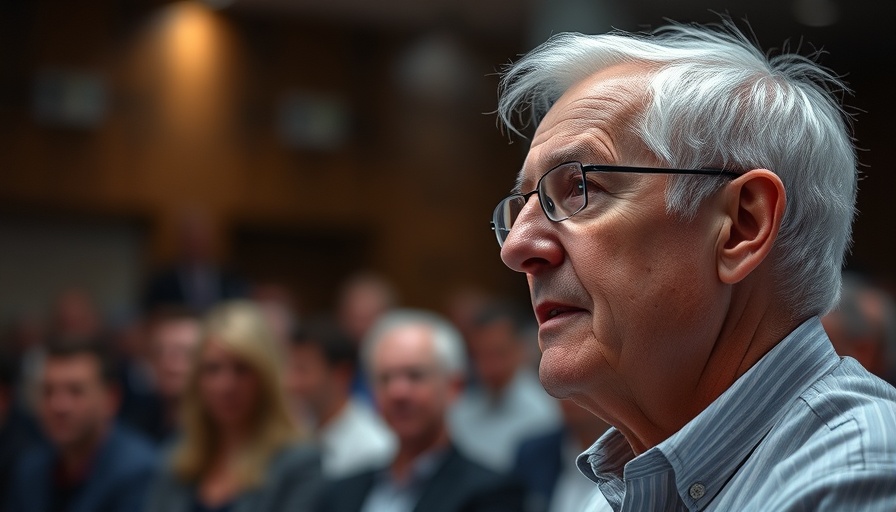
Understanding Oligarchy in Today's America
In the wake of significant societal shifts, a conversation stirs around the nature of governance and economic disparity in America. An often overshadowed reality is the emergence of an oligarchic society—a term that might send chills down the spine of every citizen who values democracy. The notion may sound alarming, yet it is grounded in current events reflected in national news and legislation. This article takes a closer look at how the wealth concentration among a select few is impacting the majority, threading the intricate relationship between politics and socio-economics.
In 'Sanders: ‘We Have A Government Of Billionaires, By The Billionaires, And For The Billionaires,’ the discussion highlights the alarming rise of wealth disparity in America, prompting a deeper exploration of its societal ramifications.
The stark reality: Wealth Disparity in America Today
The words of Senator Bernie Sanders resonate with many Americans: “We have a government of billionaires, by the billionaires, and for the billionaires.” This sentiment unveils the ugly truth of wealth disparity that now permeates every fabric of society. Currently, the wealthiest 1% of Americans own more than 93% of the collective wealth. Additionally, certain billionaires, like Elon Musk, possess wealth exceeding that of the bottom 52% of households combined. These shocking statistics paint a vivid picture of our reality; the escalating divide between the economic elite and the working class. Despite living in a nation with unparalleled resources, it is no surprise that 66% of Americans struggle to make ends meet while living paycheck to paycheck.
The Cost of Living: Everyday Struggles for Average Americans
Life for the average American is increasingly fraught with financial instability. The burden of rising rents, healthcare costs, and childcare has escalated to alarming heights for hardworking families across the country. For individuals barely making it month to month, even slight increases in expenses—be it a medical emergency or a broken-down car—could spell disaster. Senator Sanders illustrates the struggles many families face today, more relevant now than ever amid ongoing discussions of healthcare reform and economic policy on Capitol Hill.
Concentration of Ownership: Fewer Players, Higher Stakes
As major sectors, from agriculture to transportation, become dominated by a handful of multinational corporations, the fragility of economic competition grows. The implications for consumers are significant—higher prices, limited choices, and decreased innovation. We appear to be transitioning toward an economic landscape where markets are controlled by a select few, creating not just a socio-economic divide but threatening the very ideals of American capitalism.
Addressing and Acknowledging Disparities: A Path Forward?
As we observe the evolving dynamics of public opinion and national debates on tax policy changes and wealth redistribution, it becomes apparent that understanding these issues is integral for fostering informed discussions surrounding governmental accountability. Proposals for broader taxation on the wealthiest, enhanced welfare programs, and labor rights initiatives might offer pathways toward rectifying these disparities. The future will require continued advocacy and possibly a shift in political priorities, with citizens rallying around the need for fairer systems that support the working class.
A Call to Action: The Role of Community and Advocacy
Now is a critical time for citizens to engage with their local representatives, participate in national political conversations, and question the status quo. Ensuring our government serves all Americans—a truly representative democracy—requires awareness and collective action. In a landscape where national education policy, healthcare accessibility, and job security are at the forefront, every voice hinges on the power of civic engagement. By participating in local and national discussions, individuals can share insights and push for policies that actualize equity.
Ultimately, awareness is the first step; fostering communities persistently advocating for change may steer us toward a government that genuinely represents the broad swath of American life—a government of, by, and for the people.
 Add Element
Add Element  Add Row
Add Row 



 Add Row
Add Row  Add
Add 


Write A Comment